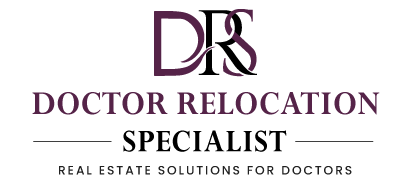Over the years, relocating as a physician presents unique challenges that require careful consideration of both your professional needs and your family’s well-being. As you contemplate a move, assessing potential communities is important to ensure they align with your practice goals and personal lifestyle. From evaluating local healthcare infrastructure to exploring educational opportunities for your children, this guide will provide you with key factors to look for as you begin on this significant transition. By making informed decisions, you can find a community that supports both your career ambitions and family life.
How to Assess Your Family’s Needs
To ensure a smooth transition during your relocation as a physician, it’s vital to evaluate and understand your family’s needs. This assessment will help determine what kind of community will best suit your lifestyle and professional practice. Consider the unique preferences and requirements of each family member. This process involves an honest conversation about what everyone values most in their living environment, including factors like climate, recreational facilities, proximity to extended family, and cultural amenities. Taking the time to prioritize these needs will aid you in finding a location that not only complements your career but also enriches your family’s lifestyle.
Identifying Lifestyle Preferences
There’s a significant diversity in lifestyle preferences among families, and as you commence on this relocation journey, it’s important to identify what resonates most with your family. Perhaps your spouse enjoys outdoor activities while your children are eager for vibrant, social environments. You might prefer a suburban atmosphere with strong community ties or a bustling urban setting close to cultural events. Engaging in discussions and listing down preferences can give you clarity on what would create a fulfilling life for everyone.
Evaluating Educational Opportunities
To ensure that your children’s educational needs are met, a comprehensive evaluation of the educational opportunities in your prospective new community is vital. Research local school districts, their performance ratings, available programs, and extracurricular activities. Meeting with school officials or visiting schools can provide insights into the environment, culture, and resources each institution offers. Take into account the availability of specialized programs that align with your children’s interests, and consider the overall community’s involvement in educational initiatives.
A supportive educational environment can greatly influence your family’s adjustment to a new community. Look for areas that value educational engagement, such as active Parent-Teacher Associations (PTAs) or community support for youth development programs. Moreover, consider proximity to local libraries, tutors, or extracurricular activities that can foster your children’s educational growth and socialization. By prioritizing these aspects, you can ensure your family maintains a vibrant and enriching educational experience during the transition.
Tips for Evaluating Professional Opportunities
Some key aspects are important when you start evaluating professional opportunities as a physician relocating to a new community. Focus not only on the position itself but also on the broader environment in which you’ll be practicing. Consider the following checklist to guide your evaluation:
- Work-life balance offered by the practice.
- Opportunities for professional development and continuing education.
- The practice’s reputation and patient satisfaction rates.
- Collaboration and support within the medical team.
- The location’s compatibility with your family’s lifestyle needs.
After factoring in these elements, you will be better positioned to make an informed decision regarding which professional opportunity aligns best with your career goals and personal values.
Researching Local Medical Facilities
Opportunities in your new location can vary greatly based on the available medical facilities and the services they provide. Start by researching local hospitals, specialty clinics, and outpatient care centers to assess their quality and the range of services offered. Look into accreditation status, patient volume, and their affiliations with larger healthcare systems, as these elements can impact your practice. Familiarize yourself with their electronic health records system as well since this can influence your workflow positively or negatively based on compatibility.
Understanding the Community’s Healthcare Demographics
Evaluating the healthcare demographics of the community you are considering will help you tailor your practice to meet the population’s specific needs. Analyze the age, ethnicity, and socioeconomic status of the residents to understand the health challenges they may face and the types of services that are in demand. Are there high rates of chronic illnesses like diabetes or heart disease? Is there a growing elderly population that requires more geriatric care? Answering these questions can guide your decision on whether this community is the right fit for your skills and expertise.
Medical demographic details can provide critical insights that affect not only your practice’s success but also your satisfaction as a physician. Understanding the prevalent health issues within the community allows you to align your expertise with patient needs, thus fostering a rewarding practice. Engaging with local healthcare organizations can further enhance your understanding and establish connections that may be beneficial in your new role.
Factors to Consider in Community Safety
One of the key aspects to keep in mind when relocating as a physician is the safety of the community where you will be living and practicing. A safe environment not only ensures the well-being of your family but also enhances your ability to focus on your work. Here are some important factors to consider:
- Crime rates and trends over recent years
- Local law enforcement presence and response times
- Community support services
- Neighborhood watch programs
- Public safety initiatives and community involvement
Perceiving the overall safety of a community involves evaluating these factors and understanding how they align with your family’s values and lifestyle.
Crime Rates and Local Law Enforcement
An effective way to gauge community safety is by analyzing crime rates and engaging with local law enforcement. Research statistics on violent and property crime in the area through various online resources, such as local government websites or community safety reports. Additionally, consider visiting police department offices to ask about community policing efforts, response times to emergencies, and any trends that may indicate changes in safety.
You should also connect with existing residents to gain insight into their experiences regarding safety and the efficiency of local law enforcement. This dialogue can provide a more nuanced view of the neighborhood’s security and help you weigh the statistical data against people’s real-life experiences.
Community Support Services
Some communities offer an array of support services designed to enhance safety, from nonprofit organizations to local initiatives focused on wellness and preventive programs. Investigating the availability and effectiveness of these services can offer you peace of mind and ensure that your family will have access to important resources during your transition.
For instance, you might discover community organizations that focus on mental health support, emergency preparedness, and neighborhood engagement activities. These services not only provide safety nets in times of need but also foster a strong sense of belonging and community cohesion. Additionally, a vibrant support network can play a significant role in easing the stress of relocation for you and your family, ultimately leading to a more enriching and fulfilling experience in your new community.
How to Analyze Cost of Living
All factors contributing to the cost of living are important when relocating, especially as a physician with a family to consider. Understanding how different areas measure against your current cost of living can provide significant insight into your decision-making process. Key components typically include housing, transportation, taxes, and general expenses. By performing a comprehensive analysis, you can ensure that your new community will meet both your professional and personal financial needs.
Comparing Housing Markets
Housing plays a significant role in determining the overall cost of living. You’ll want to compare various aspects of the housing markets in potential areas, such as property prices, rental costs, and average mortgage rates. The following table outlines key factors you should consider when evaluating housing markets:
| Factor | Considerations |
|---|---|
| Median Home Price | Compare the average home prices in your target areas to ensure you can afford a suitable residence. |
| Rental Prices | Consider the average rent in the area if you are not looking to buy immediately. |
| Market Trends | Evaluate whether home values are increasing or decreasing to gauge future investment potential. |
| Cost of Homeownership | Account for property taxes, homeowner’s insurance, and maintenance costs in your budget. |
Understanding Tax Implications
If you’re contemplating a move, you should also pay attention to the tax implications in your potential new location. Each state has its own tax policy, which can significantly impact your take-home salary. Before making a decision, research state income taxes, property taxes, and sales taxes. Some states offer more favorable tax environments for residents, while others may impose burdensome rates that could affect your financial situation.
It’s also wise to consider how local taxes might affect your family’s overall financial picture. For example, certain states have no income tax, which can allow for a greater disposable income; conversely, higher property taxes could raise your housing costs. Investigating these details can provide valuable guidance in making the most informed decision regarding where to relocate, ensuring that your finances will align with your family’s needs and lifestyle aspirations.

Tips for Finding Community Engagement
Once again, engaging with your community is vital as you adapt to a new location. By understanding which organizations and groups resonate with your values and interests, you can foster meaningful connections. Here are some tips to consider when looking to integrate yourself into your new community:
- Research local non-profits or charities that align with your mission.
- Attend events at community centers or public libraries.
- Join professional networks that cater to physicians.
- Participate in local health fairs or wellness initiatives.
- Engage on social media to connect with local groups or initiatives.
Thou will find that proactive engagement not only enriches your life but can also enhance your practice through networking opportunities.
Exploring Local Organizations and Groups
Community involvement often starts with local organizations and groups. Take time to explore opportunities that reflect both your personal interests and professional aspirations. Organizations like Rotary clubs, volunteer health organizations, or community advisory boards can be excellent avenues for you to meet like-minded individuals. Not only will you contribute to causes that matter to you, but you will also build a network that supports your career growth and social well-being. Look for events or meetings that welcome newcomers; this can make it easier for you to connect and establish relationships over time.
Identifying Recreational Activities
Recreational activities not only provide a welcome distraction from the rigors of your profession but also serve as a fantastic way to meet new friends and integrate into your community. As you settle into your new environment, explore local parks, sports leagues, and community classes that pique your interest. Whether it’s hiking in a nearby nature reserve, joining a local gym, or participating in art workshops, these activities can enhance your quality of life and allow for valuable interactions.
Tips for successfully engaging in recreational activities include joining clubs or groups that focus on things you already love, whether it be sports, arts, or wellness. Attend open sessions or introductory classes to see where you fit best. Dive into community calendars and social media platforms to uncover ongoing events or seasonal festivals that could captivate you. The opportunities are boundless, and by surrounding yourself with varied interests, you fluidly weave yourself into the social fabric of your new community.

How to Navigate Relocation Logistics
Despite the excitement of relocating, navigating the logistics involved can sometimes feel overwhelming. You will need a plan that encompasses everything from finding a new home to ensuring your children are settled in their new schools. Approaching this process methodically can ease your transition and help you focus on both your practice and your family’s integration into the new community.
Planning the Move
Logistics is the backbone of a successful relocation. Start by creating a checklist that outlines each step of the process, from researching neighborhoods to hiring movers. You should allocate time for packing and consider when your new job starts, as this can dictate your moving timeline. It is also wise to set a budget for the move, factoring in costs such as moving supplies, transportation, and any temporary housing needs before you find your permanent residence.
Connecting with Local Physicians
An important part of acclimating to your new community involves establishing connections with local physicians. Engaging with other medical professionals can provide valuable insights about the local healthcare landscape, potential collaborations, and even social opportunities. You may want to attend local medical conferences, join professional organizations, or participate in community health events. These networks can help you gain a sense of belonging and introduce you to the local culture of practice.
Local physicians can be an invaluable resource when it comes to understanding the intricacies of practice in your new area. They can share insights into patient demographics, referral patterns, and the overall healthcare environment. Building these relationships early can help you not only in your practice but also in creating a supportive professional network that can assist you as challenges arise in your new role.
Final Words
Taking this into account, relocating as a physician offers a unique opportunity to enhance both your professional and personal life. Selecting the right community is an intricate process that requires careful consideration of various factors such as practice opportunities, community resources, educational facilities, and overall quality of life. By prioritizing what matters most to you and your family, you can ensure that the new environment will not only support your career aspirations but also provide a nurturing setting for your loved ones.

